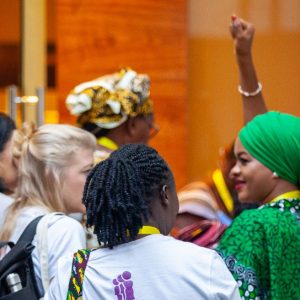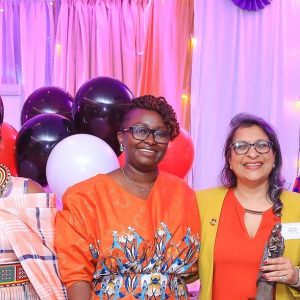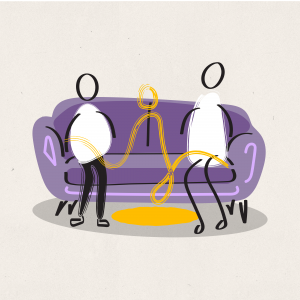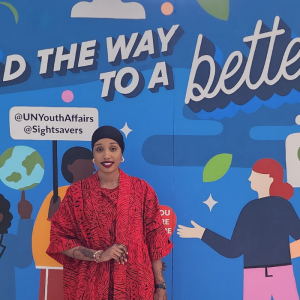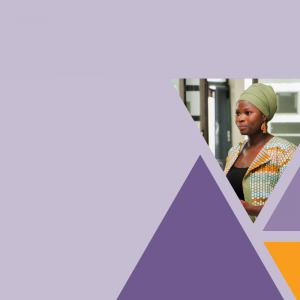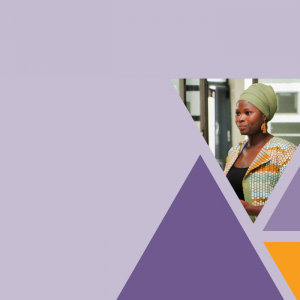Around the world, the COVID 19 outbreak has significantly impacted the way all of us live, work and interact. For social impact organisations promoting community wellbeing, the crisis has presented challenges that have forced face-to-face activities to halt. This is a necessary step to keep both communities and staff safe.
For Tostan, a long-time partner of Orchid Project who have been working in West Africa for the last 3 decades, much of their work in times of normality is carried out by facilitators who are embedded in communities. Tostan partners with communities to share information about human rights and responsibilities, to support them to bring about their own vision of community wellbeing. In nearly 9,000 communities with which Tostan has worked, their work has resulted in public declarations of abandonment of female genital cutting and child marriage.
We spoke to Tostan’s National Coordinator for Guinea Bissau, Yussuf Sane, gender specialist from Tostan’s Grant’s Management team, Marlene Menoux, and Giulio Cocchini, Project Manager for Tostan, to learn how the organisation has reacted under the crisis. We also asked them about what COVID means for work on ending female genital cutting (most commonly known as female genital mutilation, or FGM) and gender-based violence (GBV), which Tostan’s programmes address.
Responding to COVID 19
“We are experts in facilitating community-led social norms change, which usually happens over a period of time” Giulio told us. “Right now, COVID is the issue that all communities have front and centre. Some behaviours that are going to spread the COVID contagion need to be changed rapidly.”
Tostan’s usual day-to-day work involves working with communities across West Africa through a holistic, human rights-based programme that takes place across three years in local languages. With a strong commitment to the communities they partner with, the COVID crisis has presented a need for Tostan to pivot their attention and respond quickly.
Project Manager Giulio told us: “Our capacity has been limited by all the things we’re not able to do, like being physically in contact. We do have some real assets which we can exploit, and our capacity to deliver support in a context relevant way is something we’ve been able to take advantage of. We are also working in some of the most remote villages, which means we are able to share information about COVID to people who may not otherwise have been reached.
“To respond to the crisis, we’ve created booklets in local languages that provide information about protection from the virus and how to prevent it spreading. This is a gap that we could fill, as many of the governments in the countries we work in only provided information in English, French or Portuguese. Most importantly, we’re sharing why it’s important to follow the guidance, which is really vital to encourage people to follow it”.
Speaking from Guinea Bissau, National Coordinator Yussuf Sane added: “What’s great is that much of the messaging we’re sharing is already a part of Tostan’s programmes, so it’s reinforcing those messages. For example we talk about germ transmission and the importance of hand washing.
“One of the major concerns is the wellbeing of staff and the wellbeing of communities. We can best promote wellbeing when we’re doing that internally. In Guinea Bissau and all the countries Tostan works in, our facilitators have returned to their families, but they are still keeping the communities in mind. They are retaining the connection and listening to what is needed and any challenges that may be arising.
“We have learned that on a local level Community Management Committees set up through the Tostan programme and led by the community, that collaboration with local government services such as health centres has been imperative for villages in dealing with the crisis. This seems to be happening across many of the countries in which we work across West Africa.”
Gender-based violence, FGC and COVID 19
With the global pandemic and the need to respond front and centre in everyone’s minds, discussion around female genital cutting and gender-based violence may not be the immediate priority for the communities themselves. There has, however, never been a more crucial time to consider how women and girls are being affected.
There is a global trend that shows an increase in GBV, and UNFPA estimates that a further 2 million girls will be cut in the next decade due to pandemic related disruptions in prevention programmes.
Marlene from Tostan told us what they are seeing at the grassroots level around issues of violence against women and girls and female genital cutting.
“There are many knock-on affects from COVID, and there is a global trend that we’re seeing around violence against women and girls. The pandemic is adding stress to everyday lives and we are keeping an eye on the potential rise in tensions and violence”.
“We are continuing our radio programmes, which is one way we can continue to share information with the population. We work with key influencers and religious and traditional leaders, and our facilitators keep a close link with the communities on the phone and whatsapp conversations to address issues they may need assistance for. One of the issues we address in our radio programmes is domestic and gender-based violence.”
The focus for many NGOs and community-based organisations at this time is trying to prevent a roll back on the significant progress that has already been made towards ending FGC.
Yussuf added: “One tangible impact in Guinea Bissau has been that many villages we partner with through our Community Empowerment Programme were ready to declare abandonment of cutting and child marriage. Those ceremonies had to be cancelled, but there is still huge momentum and enthusiasm within the communities to the decision they’ve made about those harmful practices and their commitment to human rights.
“Most importantly. COVID has shown us what communities can do when our facilitators are not physically there. In a sense, it’s an opportunity to see how, post-programme, they can collaborate and address issues that weren’t necessarily addressed in the programme. This is what the pandemic is showing us – the power of the communities we partner with.”
This interview is part of a series of spotlights on grassroots voices on the impact of COVID-19 on female genital cutting. It was carried out on the phone and written by Orchid Project’s Senior Communications Manager, Miranda Dobson, with National Coordinator for Guinea Bissau, Yussuf Sane, gender specialist from Tostan’s Grant’s Management team, Marlene Menoux, and Giulio Cocchini, Project Manager for Tostan.
Image courtesy of Tostan.

